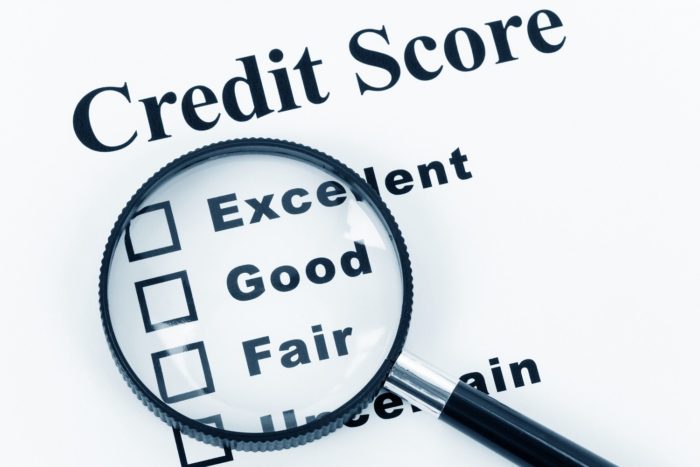
Credit score has become a very important element of an individual’s life. It has become an important measure of your financial health. The banks or lenders make financial decisions based on the credit scores of an individual.
The credit score impacts your financial health in many ways. A good credit score would help you in qualifying for loans easily. Also, you are likely to get a very low-interest rate if you have a good credit score.
On the flip side, poor credit scores can haunt you for life. Getting a loan would become ten times difficult. Financing any of your needs would become a problem.
What Is A Credit Score?
A credit score comprises of three digits and acts as a rating of your credit report, while also explaining your complete approach of handling debt. Almost all lenders use it as a benchmark to ascertain financial appetite.
These scores are calculated by different credit rating agencies that use your credit reports and transform it into a number which makes it comprehensive for various financial institutions. This number can be a part of different ranges which have been formed to conclude the creditworthiness of an individual.
People can be assigned different credit scores from different rating agencies. The difference in scores from various credit agencies comes from the different methodologies used. Also, different agencies calculate the rate at different times.
Naturally, it is not possible to track all the credit scores you are given. Therefore, it’s better if you keep a tab on the well-known scores which are accepted by all kinds of lenders. This would give you an overall image of how you are performing debt-wise.
Knowing What Your Score Means
Credit scores are calculated by considering various factors and decide how easily your debt requests would be approved. They tell your lenders about the risk they will have to bear on approving a credit request. To find out where you lie on the spectrum, you can check credit score uk online.
In general, your score can dictate your risk profile in two large ways:
- A score between 750-850 indicates the responsiveness towards the debt component of an individual. It suggests that the individual has been careful in making payments towards his debt. A score which falls in the range of 700-750 is rated as above average.
- People with a score of less than 600 should start working on improving their positions. Try reaching out to lenders. Also, start with creating a positive payment structure and addressing your debts with proper financial planning.
Note that these scores are merely a prediction rating, designed to indicate your likelihood of making timely payments. It keeps a check on your delinquency towards making repayments.
Here is a breakdown of your position on the risk spectrum:
Credit Score Between 850-800: Exceptional
This credit score range spells out responsible behaviour. People in this range manage their debts and the costs which comes from it quite effectively and efficiently. Also, they qualify for low-interest rates from various lenders.
The people lying in this zone have almost no financial risks. They make timely payments which reflect on their credit reports and easily qualify for lower interests on their personal and mortgage loans.
Lenders view them as non-defaulters. The individuals reap out the maximum benefit from the exceptional credit score range. Their payment history records are clean.
Credit Score Between 799-740: Very Good
This range is considered a very good range to be in and indicates healthy financial management. The individual has been quite good at managing his credits and makes payments towards utilities on time. Also, they are less likely to utilise all of the credit limit available on their credit cards.
This range comes with low risks for the lenders.
Credit Score Between 739-670: Good
This scoring range is considered slightly above average as the average score for the UK is around 700. The people lying in this range receive fair treatment from the lenders.
While these individuals might get loan approval at competitive rates, they tend to not be considered for the ideal rates given by the banks. Also, they might find it difficult to avail of different kinds of credit options. Unsecured loans would be difficult for people falling in this score range.
Credit Score Between 669-580: Fair
This range is considered as an average range. A small glitch with the repayments can bring you down to this category. Moreover, you might become a part of this category if you skip your credit card or loan repayments for 2 to 3 months.
People who fall in this range have not committed any substantial financial blunders. This problem can be tackled by various financial management techniques. They might get a loan at high rates depending on the lender.
Credit Score Below 580: Poor
This is a dangerous credit score zone to be in. A person comes in this category after major or regular defaults. It can also be a result of bankruptcy or business directly impacting your income.
A credit score lying in this zone can give you a lot of financial trouble and affect your financial health up to 10-15 years. Getting a new credit score can be a major challenge for individuals falling into this category.
Financial help would be needed to make everything fall back into its place. This range would require you to make major budgeting and financial decisions.
Conclusion
Credit card bills and loan repayments should be paid on time. If you let those balances pile up, it can haunt you all your life. Making timely payments is the best and easiest way to start if you want to improve your credit score.
Some banks provide loans without credit check, which can help you get back on track. Also, minimising the component of debt could help your cause, so keep checking your credit scores and put in efforts to improve it. A better credit utilisation ration would help.
Additionally, go for a healthy credit mix. This will minimise your risks and make you reconsider your debt choices.






